We Need to Strange-ify Masculinity in Order to Dismantle it
It’s so odd to talk about the whole process of being a man. I think it’s because while it’s everywhere it’s so invisible. It’s that central authority in society, that ubiquitous thing that orders everything else, so that absolutely everything about it is taken for granted – as natural, just what it is – the default. The character you’d get in a video game if you didn’t select one on time. It’s Mario. The other reason is that on the surface it’s so unremarkable and bland. In the past decade – through feminism, post-colonial theory and lgbtq activism – hitherto uniform identities have fanned out into rich spectrums. Sub-identities have proliferated like Netflix sub-genres. All except for straight masculinity. It just sits there, the huge tub of vanilla staying put in an ever expanding Gelato shop.
We need to strange-ify it: to inspect the peculiarity of it, in order to finally ‘see’ it for what it is – an identity that’s congealed over centuries, full of quirks and glitches. So, below you will see the 4 things I find oddest about being a man, based on my 31.25 years of being male.
A blunder makes you Un-Male
The weirdest thing about being a man is all the little restrictions on your behaviour. There are all these tiny borders on male identity, infrared beams on the perimeter, that when you pass you feel a sudden ‘oh wait.’ They’re often really specific, tiny things, that most guys will have done at some point – you pick clothes out with a certain colour (pastel shades, yellow) then hesitate to wear them, put too much effort into decorating your room (or frankly anything), check your fingernails with your palm out instead of in, express enjoyment of a rom-com or musical, use too many smiley faces in a text. It’s that inner grumble when you order a cocktail and it comes in a fancy slender glass rather than the Don Draper one you imagined. It’s the reason male fashion is so limited – so dour, standard and uniform – because deviation is dangerous.
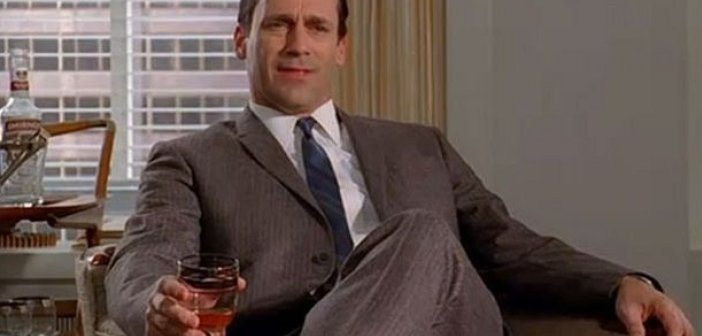
Now I know these all sound tiny. And I’m not going to start a ‘we’re-the-real-oppressed-ones-because-I-feel-weird-buying-Special-K’ rant, but there’s hundreds of these little things, and they get at the same basic thing – that men should do things that are bluntly functional, and steer clear of anything un-necessary, decorative, aesthetic. Masculinity doesn’t do flourishes. A few too many loops in your handwriting can damn you. Flourishes – in dress, movement, language – are considered queer, feminine, vaguely French. “Masculinity is the relentless repudiation of the feminine.” The sex advice columnist Dan Savage points out the absurdity that, even when engaged in straight sex, a man can start querying whether some of the choices he’s making are gay or effeminate. As he puts it:
To be a straight guy in America – what makes you straight is that you’re not a girl and you’re not a fag. So anything that girls do or like, or fags do and like, is forbidden.
I think of it all under the umbrella term ‘un-male’ – because once you commit a blunder you risk losing your status as male in others eyes. I heard if you do it too many times, you have to go to the office, give up your man-badge, hand in your penis, and just wander on your way into the wilderness, no use to anyone except as a cautionary tale to young boys – ‘the un-man who did too many fancy things.’[pullquote]Ironically, trying to be strong and in control makes men volatile and weak – more vulnerable to insults, apprehensive of being shamed as un-male, and more likely to lash out in random violence.[/pullquote]
Ring fencing masculinity with all these tiny borders has some odd consequences. I think that, ironically, trying to be strong and in control makes men volatile and weak – more vulnerable to insults, apprehensive of being shamed as un-male, and more likely to lash out in random violence. It breeds a really strange sensitivity into men, giving us an ego like a waterbed. Push down on one side of the ego – show a man to be inadequate or un-male in one way, and sploooghhh – up rises the ego on the opposite side; he’ll assert himself as hyper-male in another arena to compensate. I’ve been at parties where a little moment of too-much-laughter at one guy’s failing gives the party a gnawing tension as the guy goes sullen and waits for any excuse to erase the snub with a clumsy punch.
I think the borders of being un-male tell us a lot: by exploring them we can see what’s excluded, what’s encouraged, and the effect this has on men. There’s a whole other article to be written on the emotions that are included and excluded, the ones that are coded as feminine and the ones that we’re encouraged to wallow in, but personally I’m quite curious about the other un-male things we don’t hear as much about right now.
Virility is Strength
When that viral catcalling video went around last year, one of the most common reactions to it was ‘Do they actually think that’ll work?’ That the girl will stop and say ‘wow, an offer of sex on the street? Why, you do seem a friendly man, and you certainly are skilled at compliments too – why not! Carpe diem!’ In the age of Tinder, it really is an incredibly inefficient way to have sex.
Personally, I don’t believe they think it’ll work. Often they’re not directing it at the woman either.
One of the biggest qualities of being a ‘real man’ is to either have sex with lots of women, or to constantly display your desire to do so. Virility can be demonised in women but in men it’s a marker of worth. “The sexual mandate of the guy code – have sex with as many women as possible, as frequently as possible, no matter what (Kimmel).“ In movies, the easiest way to set up a character as a loser is to have him fail with women or be a virgin. Think Screech rather than AC Slater, Paul Giammati rather than George Clooney. With men there’s a vast chasm between potent and impotent. Catcalling is a shortcut to prove that you are a desiring & potent man – you perform your horniness for yourself and other men, setting yourself up as so over-brimming with manly desires you have to yell on the street.

Because if you’re not actively desiring, you’re weak – your sexuality is passive/feminine, and worse still, you could be gay, the most un-male thing of all. Staving off any perception of yourself as gay is a constant activity of masculinity, and requires broadcasting your sexual desire at all times. “Homophobia is the fear that other men will unmask us (…) reveal to us and the world that we don’t measure up (Kimmel).” Catcalling translates as a yell to a friend: ‘Hey, I’ve a penis and love boobs, just, um.. Just in case that wasn’t obvious.’ It’s yelling at the world that you’re very much a man. It’s plain old dick-flexing.[pullquote]One of the biggest qualities of being a ‘real man’ is to either have sex with lots of women, or to constantly display your desire to do so.[/pullquote]
It happens in smaller ways too. I remember one time I was travelling down the country with a boss from work. We stop at a traffic light, and he spots a girl. He suddenly turns to me, all his engines revving through his eyes – “The talent in this town. Would you look at her Tom? The one in the pink – you would do things to her wouldn’t you? Or which one would you go for?” and he just stared at me to answer. And it struck me he was testing me. I think most guys have been in this scenario, where they’re called on to co-pilot at perving on a girl as assurance of their masculinity. It feels like watching an old man thumbing through dirty postcards as he elbows you and grins.
‘Please turn me on I’m Mr Coffee with an automatic drip’
One day a friend of mine was telling us all about a date she’d been on – “And I sorta tried to move it on – you know – and he just said he didn’t feel like it.” There was this wave of raised eyebrows around the room and, as that receded, a backwash of ‘hmmmm’s. It had been silently decided that this date she was on was most definitely with a gay guy. And it stuck with me that there was something strange about that. That it’s unfathomable in society that a man will ever choose to turn down sex.
Now, obviously there are really big differences in sexuality across genders, and especially the speed with which desire builds. I always thought of it as sorta like the difference between the sand and the sea on a hot day. But still, I think our view of male sexuality in culture goes beyond that – we see it as this ‘automatic drip’ – that male desire is an unstoppable torrent once it’s triggered. All it takes is a sexy girl, and then it’s like a guy is under a spell : he’s overcome by desire, loses all focus and drops whatever he’s doing. That cartoon moment happens – eyes pop out of head, heart tries to escape, and if it’s in the 80’s the guy says ‘hubba hubba.’
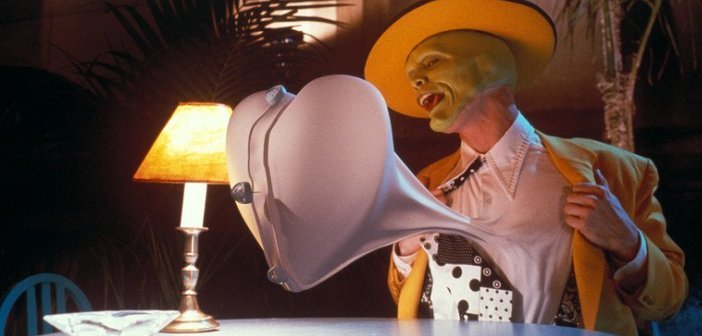
In comedies there’s also that stock scene where the goons are guarding something (bomb/safe/prisoner) and the sexy girl walks up pretending to be lost and suddenly the goons give up their posts and follow her (only to be clubbed in the back of the head). Indeed, there’s very few scenarios in a film where a male character can’t be distracted by a sexy girl, even if he’s on the way to see his wife, defusing a bomb, working on a big police case. When we see him look up surprised, we don’t question the cut to them collapsing into a bed.
What I’m getting at is that we see male desire as something that can’t be governed or controlled by men once it’s triggered. It’s like blind rage. It’s this fog that rolls up through you and takes over your body, turning you into a kind of Sex Golem, who’ll only stop once the job’s done. It’s there in the whole ‘what were you wearing’ argument, because a girl should know not to awaken desire like that. I loved the recent movie Mustang, set around 5 teenage sisters in Turkey (really, really, watch it). In it they’re constantly told that the world of men is one of constant irrepressible desire and they have to be shielded from it by burkas, barred windows and house-arrest; they’re five red rags in a world of bulls. The myth of the Sex-Golem is used as a reason to repress women, and make them accountable for inspiring desire – they should know that male desire is an automatic drip that you can’t stop once it starts.[pullquote]I think we view male sexuality in culture as this ‘automatic drip’ – that male desire is an unstoppable torrent once it’s triggered.[/pullquote]
But that’s bullshit. I mean, with sexual desire a whole shedload of situations can intrude and complicate things – emotions, awkwardness, confusion – where you find you just have to walk away from it. In my own experience and guys I’ve talked with, we’re not always tear-your-shirt-off raging with desire, and even at its height you’re not completely were-wolfed by the possibility of sex, you can still reflect on where you’re at and choose what you’d like to do.
I think it’s important that we strange-ify this particular invisibility. Right now, we’re in a period where we need to interrogate exactly what messages are facilitating men’s engagement in sexual assault, especially on campus. Personally I think we don’t teach men to think about their own sexuality and take control of it. We do the exact opposite – we tell them (a) that the strength of their desires correlate with their manliness, and (b) this desire is so strong it’s out of their control and they don’t need to feel responsible for it. “The assumption that “he’s gotta have it” underlies much of our culture’s acceptance of male sexual violence (Hooks).“
Do the Giant Women make us happy?
I have a really strong memory of this one dank wet night in Dublin. I was wandering on my own, feeling soggy as wet cardboard, with that sadness that sits like gloopy oil in your stomach. Then I looked up and saw this absolutely giant woman on a billboard off Mountjoy square. Huge. With blonde hair, biting her lower lip, and a black bra framing the absolute softest cleavage (like so big and soft that even a tall man could easily fall asleep there). And it made me feel so fucking shit. All the way home on the bus, I was trying to think why. I mean, a really sexy billboard with a gorgeous girl should be uplifting, right, that’s what we’re told? But it struck me that there’s a double code to objectifying images – while they say to women this should be you, they say to men this should be yours.
And if it’s not, you’re doing something wrong.
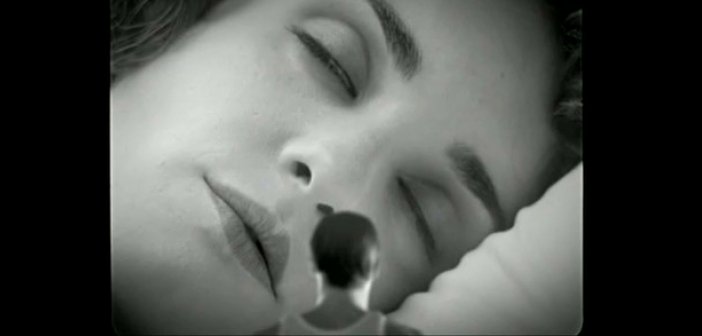
We’re bombarded by these fantasy woman – across billboards, magazines, ads, tv shows, movies – nearly all fitting a really specific idea of attractiveness: young, toned, white, and wanting. I must see, on average, a hundred images a day just walking through the city. In so many thousands of movies, this pretty girl will be the reward for the hero – the prize he gets to show he’s evolved beyond himself and done something magnificent. The message to boys growing up is that if you just go out there into the world and succeed you’ll be handed your beautiful soft boob-trophy, it’s owed to you. Every image stokes that feeling of ‘owed.’ I think that’s dangerous.[pullquote]There’s a double code to objectifying images – while they say to women this should be you, they say to men this should be yours.[/pullquote]
Imagine instead of a Giant Woman, every billboard had a million euro note in the centre. Beautifully lit, impossibly crisp notes. And you saw this image everywhere growing up – on every magazine cover, in every movie. You grow up, go out into the world, and it’s suddenly difficult to find a million euros. So then no matter how much you earn it’ll never be enough. And you get angry because a real successful man is a millionaire. You haven’t made it, and every billboard is there to remind you.
Maybe you even read a book about how to cheat the system, become a con-artist. I think this gap between expectation and result is why we get Pick Up Artists and MRA’s. They’re men who’ve gone out into the world and weren’t given their Giant Woman. They don’t get angry at the media that lied to them about what they were owed or the culture at large, but at the women around them who either won’t want them like the Giant Women, or don’t look enough like the Giant Women. If you scroll through MRA reddit forums, one recurring theme is ‘why can’t I have sex with the sexy girls?’ when it should be ‘why did I presume sexy girls were owed to me?’ “Women are the targets for displaced male rage at the failure of patriarchy to make good on its promise of fulfillment, especially endless sexual fulfillment (Hooks).” And even when you’re in a relationship these images are a whisper in your ear to remind you ‘she’s not a Giant Woman,’ or ‘she has hair/fat/spots in the wrong places, not like them,’ that can lead to a guy’s endless nitpicking, souring a relationship’s core.
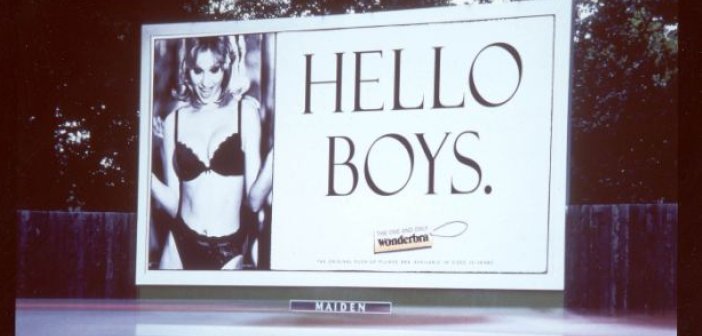
Men who are vigilant in the defence of objectifying images don’t seem to take into account that the short term gain – that brief moment of ‘oh she’s cute’ – is far outweighed by the overall loss, the ‘damn, I can’t have that.’ Actually we have a lot to gain from dismantling them. The objects of our desires are largely constructed by the media around us, and so if the media diversify their images, and give us more realistic depictions of women, then it stands to reason that boys growing up with that media would be more open in their attractions and less likely to become disillusioned by the realities of sex and relationships.
So, right, what am I trying to say?
I think we’ve got an incredible opportunity to reshape masculinity right now. Feminism has provided a whole garage of tools to analyse, dismantle and re-invent patriarchal identities, and masculinity is long overdue a service. We have this one rigid identity with so many bizarre mandates, and it covers so many hundreds of millions of people around the world. As it stands it just isn’t working. Basing men’s self worth on how well they fit this one ‘man’ identity leads to feelings of inadequacy, frustration and anger. Wouldn’t it just be easier to dismantle that identity and set up a wider set of possibilities in its place?
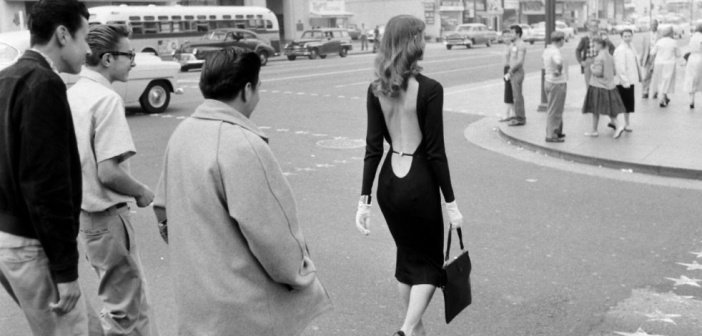
Outside of ‘for men’s own sake,’ I think we can only solve a lot of wider gender issues by understanding men and creating a language around their identity. We often look at how society condones misogyny, now we need to look at how it’s built into masculinity to begin with. I mentioned earlier that I don’t think we can tackle catcalling, sexual assault and MRAs without looking at men and trying to understand what’s driving their actions. Instead of being agents of social change, many men are a bulwark against it. Angry men irritate and disrupt the world around them like a dick in the ear. We should take a look under the hood and see what’s going wrong.
And I guess the biggest reason I feel we need to collapse the identity? Because, well because – sure fuck it – we only have this one tiny short life, why spend it battling feelings of not measuring up, seeking to prove your gender through performance, or being trapped in a useless cycle of desire, disillusionment, and anger?
——
[Thanks to @GrainneClear and @griffski for their advice & pointers]
